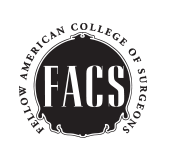The biggest decision that must be made when planning cosmetic surgery is to choose the physician. Although searching for a qualified cosmetic surgeon can be frustrating, there are some things you should know to make the process a little easier. When considering a surgeon, you should always ask if the doctor is certified by the American Board of Plastic Surgery (ABPS). Certification shows the physician has met the continuing professional development required for competence and has met the high standards of patient care set by the ABPS.
What is “Board Certification in Plastic Surgery”?
When you choose a cosmetic surgeon with board certification, you will know that the doctor has graduated from an accredited medical school and completed an additional five years of training as a resident surgeon. To qualify for board certification, the physician must have completed at least a three-year residency in an accredited general surgery program and a minimum of a two-year residency in plastic surgery. A comprehensive written and oral exam is also required for board certification.
The mission of the American Board of Plastic Surgery is to promote safe plastic surgery and ethical practices to patients. The organization has set high standards for plastic surgeon education, examinations, and certification and recertification requirements.
The American Board of Medical Specialties (ABMS) recognizes 24 medical specialty boards, including the ABPS. The board certifies surgeons in the full spectrum of this area of specialization. The ABMS provides two ways to verify board certification. You can call the ABMS at 866- ASK-ABMS or on their website at abms.org.
About the Medical College of Surgeons
The American College of Surgeons (ACS) is a prestigious professional organization and members are known as Fellows. If you see the letters FACS after the name of a plastic surgeon, the initials stand for Fellow, American College of Surgeons. A surgeon that has been given the FACS designation has education, training, surgical competence, professional qualifications and ethical conduct that meet the rigorous standards set by the ACS. In addition, the plastic surgeon must be certified in his specialty, have at least one year in practice after board certification. The last step is for the physician to pass a review of academic work, clinical work, and ethics.
The review of the plastic surgeon’s experience and ethics is extensive and the process is tedious. However, the purpose is to ensure that Fellows are well trained and considered competent by their peers. A surgeon with FACS after his or her name has completed this complex process and met the high standards set by the ACS.
To learn more about the American College of Surgeons, please call 800-621-4111 or visit their website at FACS.org.



